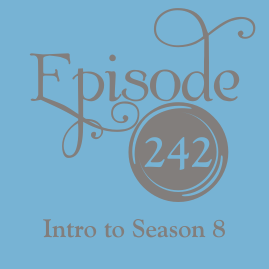
Charlotte Mason spoke to the fears and anxieties of mothers in her day. Her counsel is exceedingly relevant today. The ADE ladies have invited Jessica Becker to the podcast to discuss one of our most prevalent problems in this cultural moment, the undercurrent that affects our homes and homeschool education: fear and anxiety.
Listen Now:

Arabella Buckley’s books
Paper Folding, Paterson
Paper Modelling, Swannell
Cardboard Modelling, Heaton
The New World at Home, Kirby (edited by Rachel North)

Living Library Press
Living Book Press
Purple House Press
Yesterday’s Classics
Riverbend Press
Beautiful Feet Books
Bethlehem Books
The Good and The Beautiful




